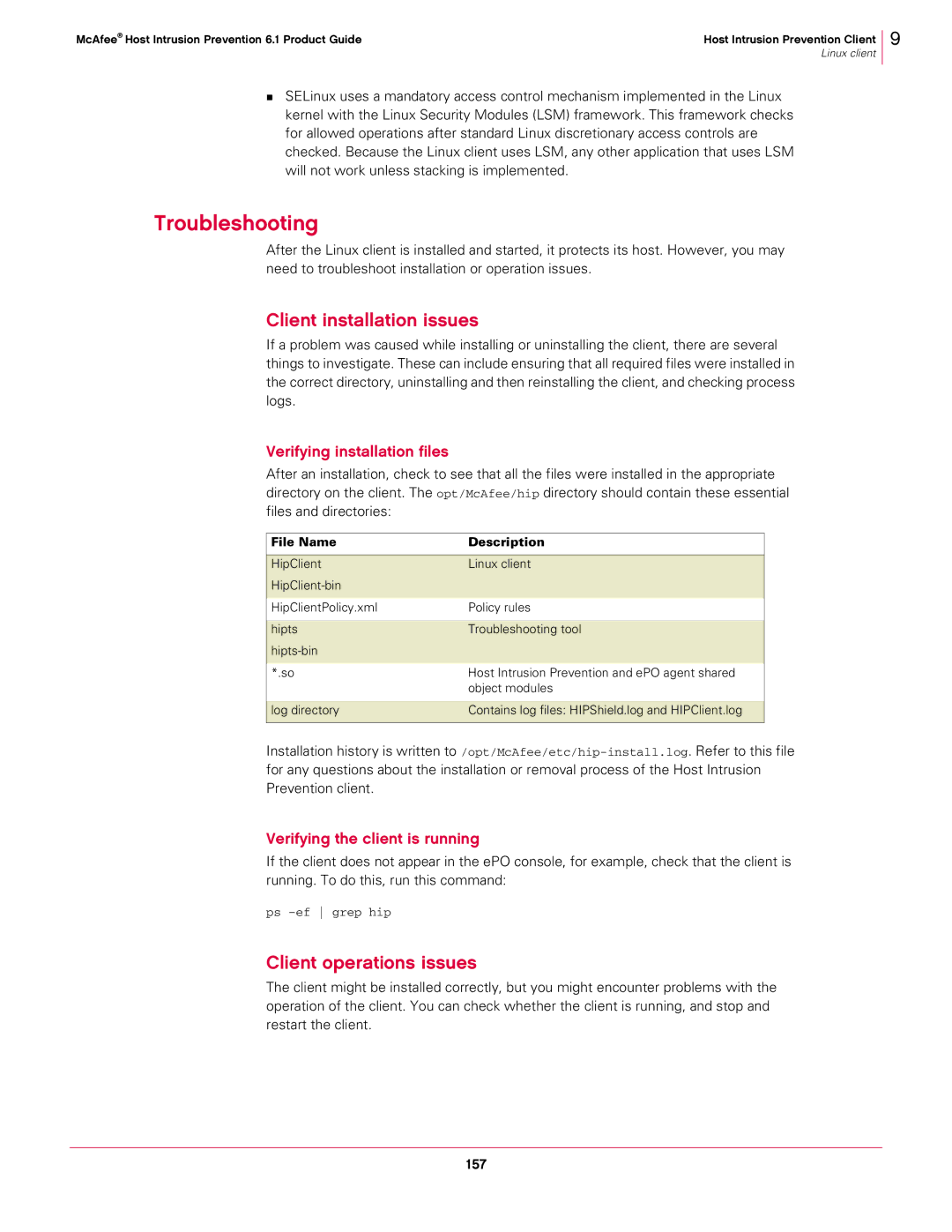
McAfee® Host Intrusion Prevention 6.1 Product Guide | Host Intrusion Prevention Client |
| Linux client |
9
SELinux uses a mandatory access control mechanism implemented in the Linux kernel with the Linux Security Modules (LSM) framework. This framework checks for allowed operations after standard Linux discretionary access controls are checked. Because the Linux client uses LSM, any other application that uses LSM will not work unless stacking is implemented.
Troubleshooting
After the Linux client is installed and started, it protects its host. However, you may need to troubleshoot installation or operation issues.
Client installation issues
If a problem was caused while installing or uninstalling the client, there are several things to investigate. These can include ensuring that all required files were installed in the correct directory, uninstalling and then reinstalling the client, and checking process logs.
Verifying installation files
After an installation, check to see that all the files were installed in the appropriate directory on the client. The opt/McAfee/hip directory should contain these essential files and directories:
File Name | Description |
|
|
HipClient | Linux client |
| |
|
|
HipClientPolicy.xml | Policy rules |
|
|
hipts | Troubleshooting tool |
| |
|
|
*.so | Host Intrusion Prevention and ePO agent shared |
| object modules |
|
|
log directory | Contains log files: HIPShield.log and HIPClient.log |
|
|
Installation history is written
Verifying the client is running
If the client does not appear in the ePO console, for example, check that the client is running. To do this, run this command:
ps
Client operations issues
The client might be installed correctly, but you might encounter problems with the operation of the client. You can check whether the client is running, and stop and restart the client.
157
